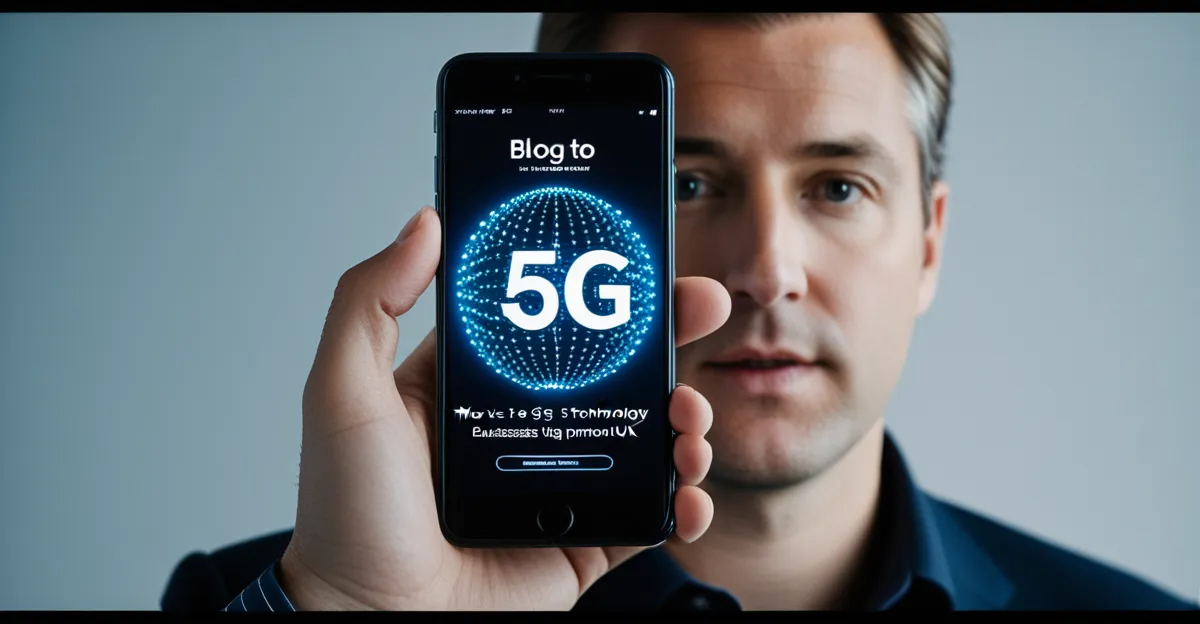Effects of 5G Adoption on UK Businesses
The pace of 5G adoption in the UK has accelerated notably, with many enterprises investing in the new technology to gain a competitive advantage. Current rollout efforts show increasing access to 5G networks, especially in urban and commercial hubs. This momentum is reshaping business impact by enabling faster data transmission, reduced latency, and improved connectivity, which are critical for digital transformation.
UK businesses embracing 5G report significant operational changes. For instance, enterprises can now deploy real-time analytics and automation across various departments, enhancing decision-making and workflow efficiency. Additionally, 5G facilitates seamless integration of Internet of Things (IoT) devices, opening new avenues for innovation and service delivery.
In parallel : How Might Emerging UK Technologies Impact Future Job Markets?
Industry leaders emphasize that 5G adoption UK-wide is more than incremental; it’s a catalyst for full enterprise transformation. They point out that businesses leveraging 5G will experience enhanced agility, improve customer engagement, and foster new revenue streams. However, gradual adoption continues, as some sectors adjust to infrastructure and cost challenges. Nonetheless, the consensus remains clear: 5G is a pivotal driver for evolving UK businesses in a digital economy.
Industry Examples Benefiting from 5G
Numerous UK business sectors are experiencing tangible benefits from 5G industry use cases, which showcase the profound sector transformation underway. In manufacturing and logistics, 5G enables automation and real-time monitoring, allowing factories to optimize production lines and track shipments more efficiently. This reduces downtime and enhances supply chain visibility, critical for competitive businesses.
In the same genre : How Can UK Technology Lead the World in Innovation?
Healthcare is another sector rapidly adopting 5G technology. Telemedicine advancements benefit from high-speed, low-latency connections, supporting remote diagnostics and connected medical devices that improve patient care. Hospitals can leverage 5G to manage data from wearable devices, expanding access while reducing the need for physical visits.
Retail and events industries capitalize on 5G through enhanced customer experiences and streamlined operations. From in-store augmented reality to real-time event analytics, 5G fosters engaged customers and responsive service delivery. Together, these examples illustrate how 5G adoption in the UK is driving substantial operational improvements and enabling innovative business models across diverse sectors. This momentum not only accelerates digital transformation but also equips businesses to meet evolving market demands with agility and precision.
Business Use Cases Powered by 5G
5G business applications are rapidly transforming the way UK enterprises operate, with practical examples demonstrating tangible benefits. One key use case is the adoption of private 5G networks, which provide secure, high-performance operations tailored to specific enterprise needs. These networks enable businesses to control connectivity within their facilities, improving reliability and safeguarding sensitive data.
Another prominent 5G business application lies in the deployment of IoT solutions across supply chains and asset management. UK enterprises leverage 5G’s low latency and high bandwidth to monitor assets in real time, optimize logistics routes, and reduce operational downtime. This enhances overall efficiency and responsiveness, critical for competitive advantage.
In addition, new service offerings are emerging thanks to 5G’s fast, reliable connectivity. Industries such as manufacturing, healthcare, and retail use low-latency connections to enable augmented reality support, remote diagnostics, and real-time customer analytics. These 5G business applications not only boost productivity but also create innovative ways to engage clients and streamline operations, marking a decisive shift in enterprise transformation fueled by 5G adoption UK-wide.
Effects of 5G Adoption on UK Businesses
The current 5G adoption UK landscape shows increasing integration across various business sizes and sectors, reflecting a steady rollout of infrastructure and expanding coverage areas. Recent data from industry reports confirm that many UK enterprises now prioritize 5G as a strategic asset rather than an experimental technology. This shift underscores a growing belief in its potential to transform operations fundamentally.
Business impact from 5G adoption is evident in multiple dimensions. Companies experience accelerated data processing and markedly reduced latency, which streamline workflows and facilitate complex applications like AI-driven analytics and remote monitoring. Access to robust 5G networks allows enterprises to deploy more connected devices without compromising performance, enhancing real-time responsiveness.
Industry leaders highlight enterprise transformation as a core outcome, emphasizing agility and innovation. They point to initial results where enhanced connectivity enables new business models and improved customer engagement. Challenges remain, such as balancing infrastructure investment against uncertain returns, yet the consensus recognizes that 5G adoption UK-wide is reshaping traditional operational frameworks into digitally enhanced, more competitive paradigms.
Effects of 5G Adoption on UK Businesses
The current 5G adoption UK landscape reflects significant growth, with businesses increasingly integrating 5G technology into core operations. Industry reports indicate adoption rates rising steadily, particularly among medium to large enterprises recognizing 5G as a driver of enterprise transformation rather than a supplementary technology. This widespread rollout supports faster data transfer and remarkably lower latency, essential for enabling complex digital applications and real-time decision-making.
Key business impacts include improved operational agility and enhanced connectivity, allowing companies to deploy more connected devices efficiently. This interconnected environment boosts automation capabilities and streamlines workflows across sectors. For example, data-intensive processes such as AI analytics and remote monitoring benefit greatly from 5G networks’ responsiveness and bandwidth.
Industry leaders observe that early adoption stages already demonstrate tangible shifts in business models, including greater customer engagement and novel service delivery methods. However, they also note challenges in infrastructure investment and integration strategies. Despite this, the overall consensus highlights that 5G adoption UK-wide is catalyzing a profound enterprise transformation, positioning UK businesses to compete more effectively in the fast-evolving digital economy.
Effects of 5G Adoption on UK Businesses
The current 5G adoption UK landscape reflects a substantial rollout, with adoption rates steadily increasing across industries. Medium and large enterprises lead in leveraging 5G for enterprise transformation, integrating the technology into core operations to unlock new efficiencies and business models. This wider availability of 5G networks facilitates faster data transfer and significantly lower latency, critical drivers behind the notable business impact seen today.
Key operational changes include enhanced connectivity enabling deployment of numerous IoT devices and real-time data processing. These capabilities boost automation, accelerate decision-making, and improve workflow agility. Businesses can now execute complex applications such as AI-driven analytics or remote monitoring with reduced latency, ultimately enhancing productivity.
Industry leaders emphasize initial outcomes where 5G adoption triggers greater customer engagement and innovation in service delivery. However, they also mention challenges like infrastructure investment and integration complexities. Despite these obstacles, experts agree that the transformative potential of 5G adoption UK-wide is reshaping traditional enterprise frameworks into more agile, digitally empowered organizations ready to compete effectively in a fast-evolving digital economy.





